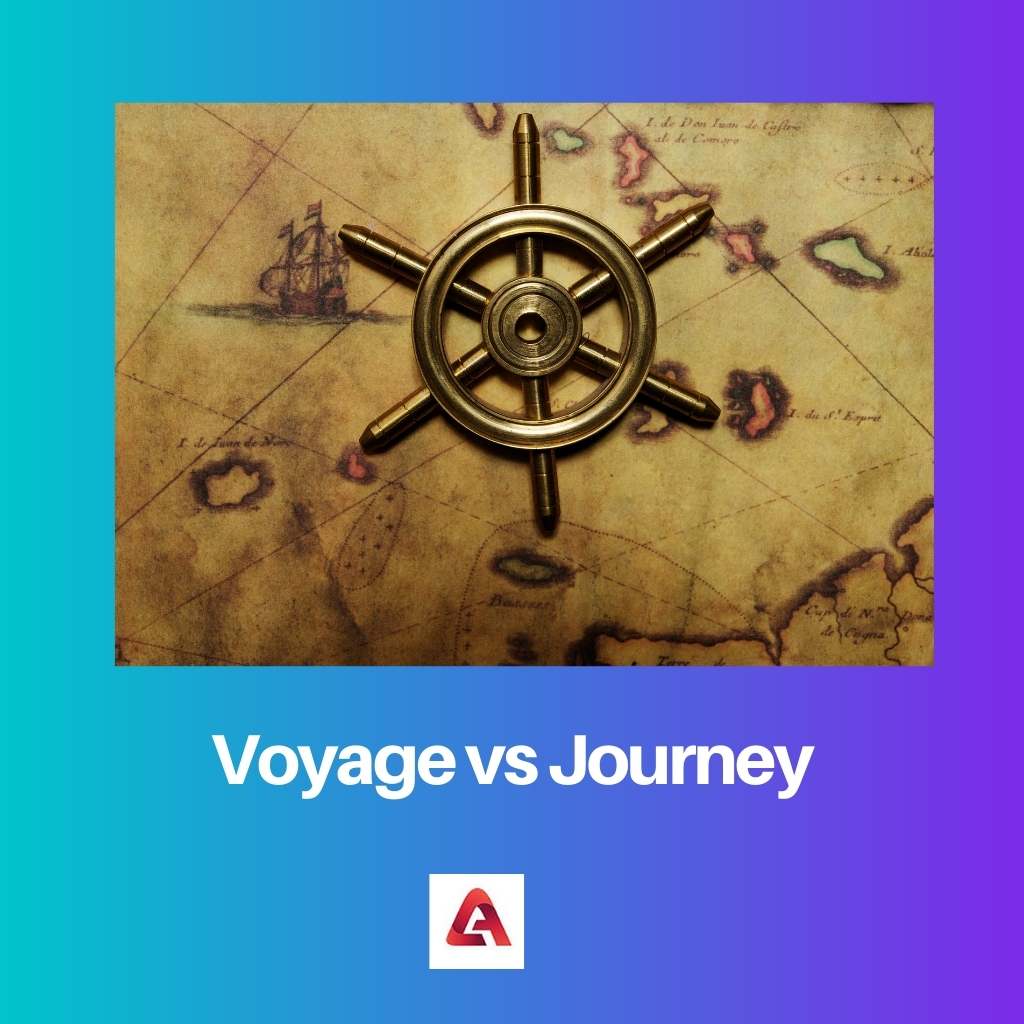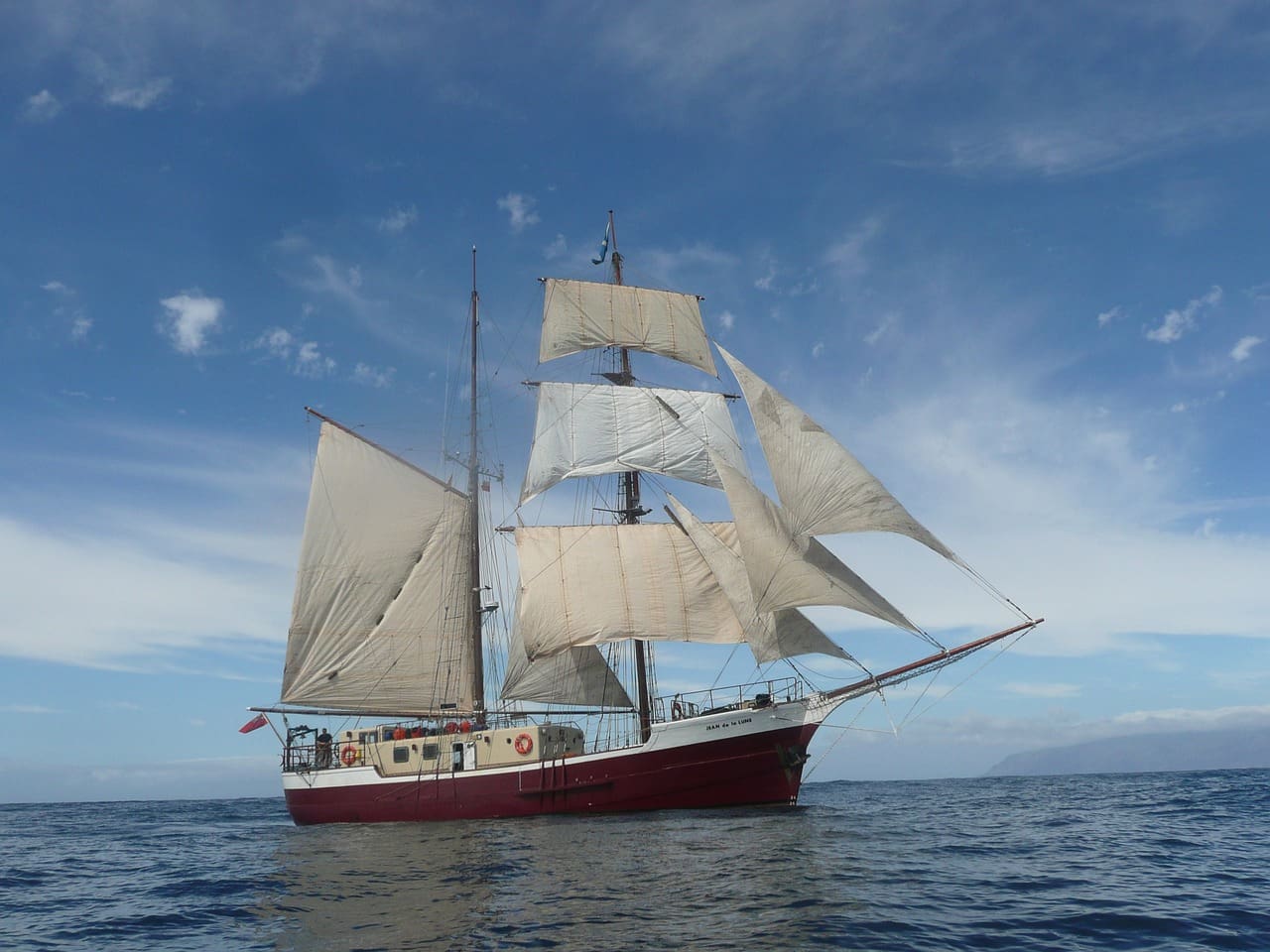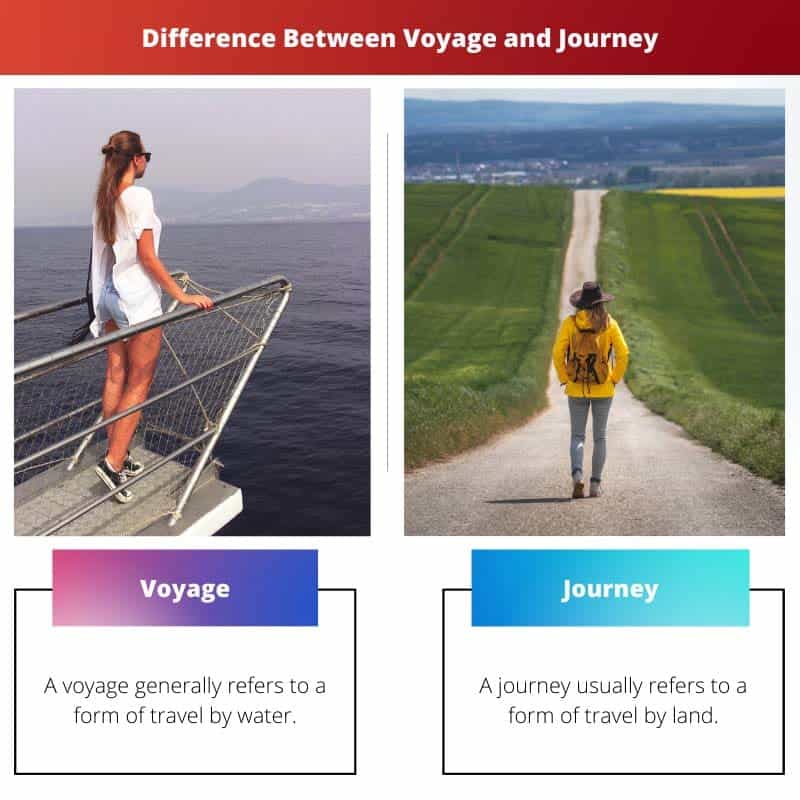The word travel is derived from the old French word called ‘travail.’ The word essentially meant ‘to work.’ The word then branched off to have a wide range of meanings like Voyage and Journey.
Although both a voyage and a journey mean to travel, their differences exist.
Key Takeaways
- A voyage specifically refers to a long trip, by sea or air, while a journey encompasses any travel from one place to another.
- Voyages involve the exploration or transportation of goods, while journeys can be physical, emotional, or symbolic.
- The term “voyage” implies a sense of adventure, whereas “journey” may refer to any trip, regardless of length or purpose.
Voyage vs Journey
The difference between Voyage and Journey is that they refer to two different modes of travel.
A voyage refers to a long-distance act of traveling, by sea or any other large water body, while a journey refers to the act of long-distance traveling by land, by different means of transport.

A voyage is an act of traveling. Usually, a voyage refers to a long-distance traveling trip mainly made on the waters instead of land.
Usually, the mode of transport hence is ships, boats, and other water vessels. The voyage can also be used to describe the passage of time. In general, it refers to sea travel.
The Journey is an English word that has diverse meanings. In general, it means to travel a certain distance.
However, a journey can be used to describe both long or short-distance traveling. It may or may not include sea travel and include a wide variety of modes of transport.
Comparison Table
| Parameters of Comparison | Voyage | Journey |
|---|---|---|
| Form of Travel | A voyage refers to a form of travel by water. | A journey refers to a form of travel by land. |
| Time Of Travel | Voyages are longer trips. | A journey is shorter than a voyage. |
| Means of Transport | Usually, the means of transport in a voyage is a ship. | Usually, the means of transport in a journey could be a train, car, airplane, etc. |
| Use of word | Voyage is a more medieval used term when the mode of transport for long-distance predominantly meant travel by ships. | Journey on the other hand is a commonly used term in today’s world and refers to any form of travel. |
| Destination | A voyage ends at one particular destination. | In a journey, there might be different destinations and sometimes just traveling is the purpose and hence the entire journey serves as the destination. |
What is Voyage?
The term voyage is a French word that means Journey. It is used to refer to a long-distance trip. For example, a story about a ship on a long journey would be referred to as a “voyage story.
Other meanings for the word Voyage include the act or process of traveling or shipping.
This term is used to describe traveling on water. A voyage consists of many different parts, such as the Voyage’s departure, the Voyage itself, and the arrival.
In the past, people used the word Voyage for longer trips, such as long sea journeys.
Voyage is a lesser-used term in the modern-day world. Other terms such as cruising, crusade, passage, sailing, and the like are used.
The main reason, however, stands as during medieval times traveling long distances could not be achieved by land as no such forms of transportation were available.
Traveling by sea by far was the cheapest mode of travel (even today); thus, this term was commonly used back then.
Today with the advent of many efficient modes of transportation like trains and planes, sea travel has reduced, and so is the use of the word. However, the term is still used but more in a poetic tone.

What is Journey?
The Journey is a phrase that means a long trip you take to get somewhere. The reason it’s called that is that it takes a long time.
There are many different types of journeys, and they are widely varied. In general, a journey is a long trip you take to get somewhere or do something.
A journey can be made for various reasons, but it is for business or pleasure. Sometimes the journey is the destination, but not always.
A journey can be a journey to work, a journey to visit a friend for the weekend, or a journey to a foreign country for a trip of a lifetime.
Any trip of significant distance is a journey, but the word Journey can also be used to describe the entirety of a person’s life. For example, a person’s life is a journey.
We all start at a young age and live our life. We travel to different places, see different things, and meet many different people.
Short-distance journeys are also termed trips. A journey, for pleasure, is termed as an excursion.
The journey made for a particular purpose is called an expedition, and so on. The word itself has many synonyms and can be used variedly.

Main Differences Between Voyage and Journey
- The main difference between the words voyages and Journey is that the former means a trip by water, and the latter means a trip by land.
- Voyage does not refer to any other sense than traveling, but the Journey is also a metaphorical word for a long trip in the sense of life and spiritual growth.
- Voyages are much longer than journeys as traveling through water takes more time and also covers more distance.
- The word ‘voyage’ implies that you are traveling to a singular destination, but ‘voyage’ means traveling between various places.
- A voyage is long, but a journey can be long or short, depending on the purpose of travel.

References
- https://www.taylorfrancis.com/chapters/edit/10.4324/9781315246970-2/defining-travel-travel-book-travel-writing-terminology-jan-borm
- https://books.google.com/books?hl=en&lr=&id=3aD_284HkrIC&oi=fnd&pg=PR7&dq=what+is+a+voyage&ots=4u1yAJXyAK&sig=Nn_d8xQNSyjOwxe33jkH9lDux_E
Last Updated : 13 July, 2023


Emma Smith holds an MA degree in English from Irvine Valley College. She has been a Journalist since 2002, writing articles on the English language, Sports, and Law. Read more about me on her bio page.

This article helped me understand the meanings and differences between voyage and journey. The comparison table is very useful.
Some of the points presented seem quite obvious, I’m not entirely convinced of the need for such a detailed analysis.
I can see your point, Sienna. However, the detailed analysis does provide valuable insights.
I enjoyed learning about the origins of the word ‘voyage’. It’s interesting to see how language evolves over time.
Very informative article, with great detail about the differences between the two. The references provide the necessary support for the text.
I agree, the article is deeply informative and well supported.
This seems to be a well-researched article, I think the author made the differences between voyages and journeys quite clear.
I don’t think the distinctions made are significant enough to warrant the length of the article.
Indeed, the author did a great job presenting the distinctions.
I found the historical context of the terms ‘voyage’ and ‘journey’ particularly fascinating.